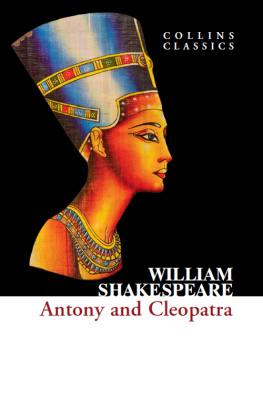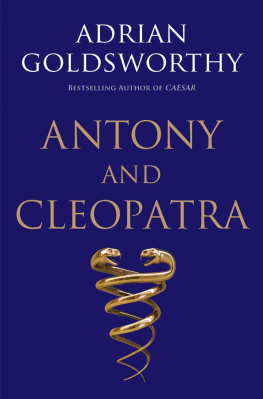Copyright 1999 Houghton Mifflin Harcourt Publishing Company
All rights reserved.
www.hmhco.com
cliffsnotes.com
For information about permission to reproduce selections from this book, write to or to Permissions, Houghton Mifflin Harcourt Publishing Company, 3 Park Avenue, 19th Floor, New York, New York 10016.
The publisher and the author make no representations or warranties with respect to the accuracy or completeness of the contents of this work and specifically disclaim all warranties, including without limitation warranties of fitness for a particular purpose. No warranty may be created or extended by sales or promotional materials. The advice and strategies contained herein may not be suitable for every situation. This work is sold with the understanding that the publisher is not engaged in rendering legal, accounting, or other professional services. If professional assistance is required, the services of a competent professional person should be sought. Neither the publisher nor the author shall be liable for damages arising herefrom. The fact that an organization or website is referred to in this work as a citation and/or a potential source of further information does not mean that the author or the publisher endorses the information the organization or website may provide or recommendations it may make. Further, readers should be aware that Internet websites listed in this work may have changed or disappeared between when this work was written and when it is read.
Trademarks: CliffsNotes, the CliffsNotes logo, Cliffs, cliffsnotes.com, and all related trademarks, logos, and trade dress are trademarks or registered trademarks of Houghton Mifflin Harcourt Publishing Company. All other trademarks are the property of their respective owners. Houghton Mifflin Harcourt is not associated with any product or vendor mentioned in this book.
eISBN 978-0-544-17956-1
v1.0516
Play Summary
Act I
This act serves to introduce the main charactersAntony, Cleopatra, and Octavius Caesar; it also outlines the main forces which motivate each of them. The first scene is set in Alexandria, where two of Antonys men, Demetrius and Philo, describe the lovers relationship. Caesar appears in a later scene, and we see how he perceives Antony and Cleopatras relationship. In addition, his comments about Antony reveal a great deal about his own character. We also have ample evidence in this act that Antony and Cleopatra are deeply in love, but Antony does not realize the tragic possibilities of their infatuation, yet he is torn by divided loyalties. In short, this first act sets out what the relationships are among the main characters, and it establishes the basic conflicts that dominate the rest of the play: first, Antony and Cleopatra and their love for one another; and second, Antonys rivalry with Caesar.
Act II
In this act, Shakespeare accelerates the inevitable final conflict between his primary characters. Pompey, an insurgent force against Rome, has become enough of a threat to the Roman Empire that the triumvirs are forced to form a truce in order to present a united front. Antony and Caesar decide to resolve the fighting among themselves; this new alliance is to be cemented by the marriage of Antony and Octavia, Caesars sister. When Cleopatra finds out that Antony has married, she is devastated by the news. But she resolves not to give up Antony so easily. In the meantime, even while Antony pledges his loyalty to Octavia, his thoughts have returned to Egypt and Cleopatra.
Act III
Most of the main events of the play have their beginnings in this Act. It begins with the continued efforts on Antonys part to work on behalf of Rome and regain his stature in the world of politics and war. But before long, he tires of the pursuit of power in Rome and decides to return to Egypt.
Octavia accompanies Antony to Athens, but she returns to Rome alone after Antony decides to return to Cleopatra. Octavias disgrace gives Caesar sufficient reason to hate Antony even more than he already does, and he vows revenge. Octavias discovery that Antony is glorifying Cleopatra and her children, one of them the illegitimate son of Julius Caesar, provides enough of an excuse for Caesar to declare that both Antony and Cleopatra are traitors. War begins, and Antonys forces are defeated; the rest of the play focuses, thus, on the aftermath of this battle and its effect on the love between Antony and Cleopatra.
Act IV
Antony is at first despondent over his defeat. He places the blame on Cleopatra, who fled with her ships. He jeers that she will desert him for Caesar, just as some of his troops already have. She convinces him that he is wrong, and they courageously make one last attempt to defeat Caesar. They win a battle, but their victory is short-lived, and finally they are absolutely defeated. Again, Antony doubts Cleopatras loyalty, and so she flees to her monument, the tomb where her body is to be buried after her death. She hopes to make Antony see the error of his doubts about her by sending him word that she is dead. Antony suffers great remorse and falls upon his sword. He does not die immediately, however, and he is taken to the monument, where Cleopatra is waiting for him. They spend his final moments together, and Cleopatra is left to face the Romans alone.
Act V
This final Act concentrates on Cleopatras last hours, as she negotiates with the Roman victors. Caesar has promised that she will be treated with honor in Rome, but she has good reason not to believe him. One of Caesars officers, Dolabella, warns her not to put her faith in Caesars promises. Cleopatra resolves to die rather than be taken captive to Rome, and she and her women have a basket of poisonous snakes smuggled to them in order to commit suicide. Thus, both Antony and Cleopatra die and they ultimately deprive Caesars final victory of its full glory, as he finally acknowledges.
Character List
Mark AntonyA middle-aged Roman general who rules the Roman Empire along with Lepidus and Octavius Caesar. He is torn between his desire for Cleopatra and the demands of his position as a world ruler.
Octavius CaesarThe adopted son of Julius Caesar, his grand-uncle, he is only in his early twenties, but he is determined to ultimately be the sole ruler of the Roman Empire.
LepidusAs a member of the Triumvirate, he serves as a mediator between Antony and Caesar, the two rivals; he has no real power of his own.
CleopatraShe is aware of her duties as Queen of Egypt, but she is deeply infatuated with Antony; her heroic courage is revealed when she and Antony are defeated and she chooses to die in Egypt, rather than return to Rome as a captive.
OctaviaShe becomes engaged to Antony in order to cement a political and military truce between Antony and her brother, Caesar.
Sextus Pompeius (Pompey)Formerly a Roman, Pompey left Rome with a faction that included several pirates and some of Julius Caesars navy. He attempted to form his own kingdom, and he is able to cause the Triumvirate trouble by plundering their ships.
EnobarbusAntonys trusted lieutenant and close friend; eventually, he deserts the man he both admires and pokes fun at, yet he later commits suicide in remorse.
VentidiusAnother of Antonys officers, he is sent to fight the Parthians. He is a brave and capable general and is absolutely loyal to Antony.
SearusAnother of Antonys officers; he serves as Antonys aide after Enobarbus deserts his general.
DercetasHe is one of the first to find Antony after Antony has tried to kill himself. Dercetas deserts to Caesars faction, taking Antonys sword as a sign that the enemy is almost defeated.
Next page










